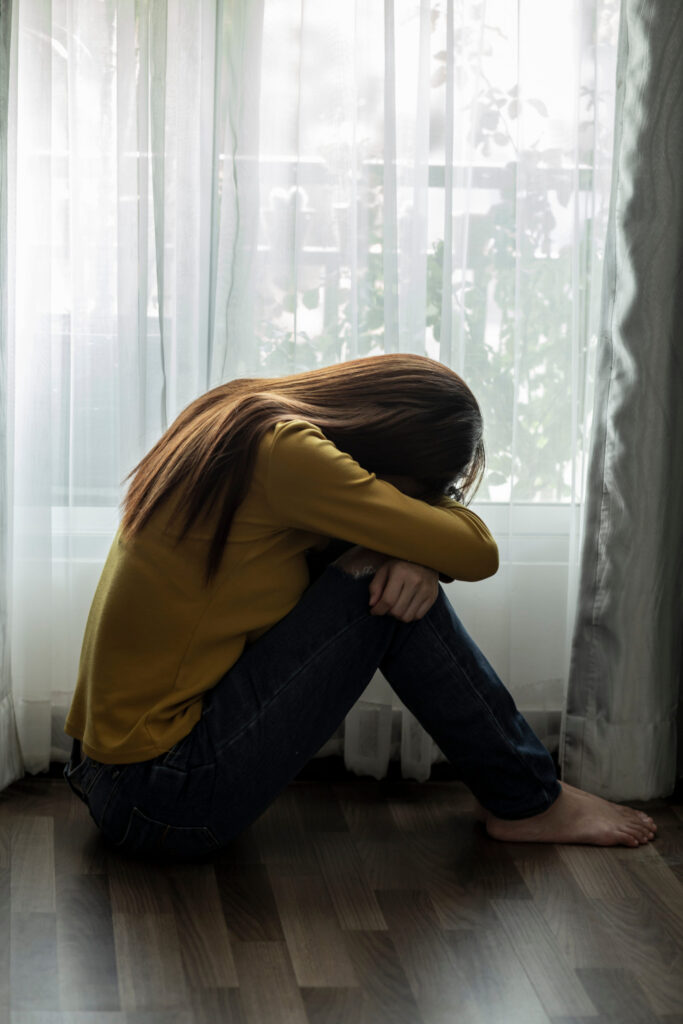Get In Touch
Contact Thrive Treatment to learn more about our innovative substance abuse, dual-diagnosis & mental health treatment programs for teens, young adults, & adults in Los Angeles, California.





Depression is a mood disorder that seems to leech into and touch every part of your life. It affects not only how you feel but also seeps into everything, down to your ability to take on the simplest of daily activities. Unfortunately, major depression is also among the most common mental disorders in the United States, with over 17 million adults having had at least one major depressive episode. However, despite its ubiquity, there are always treatment options for overcoming depression, with Thrive Treatment’s depression treatment centers in Southern California available to help you explore depressive symptoms and the underlying causes of depression for comprehensive care and a holistic approach to change.
We’ve all felt down or a little under the weather from time to time. A bit blue, as they say.
However, feeling a touch low now and then is a far cry from what it feels like to be wallowing in the depths of a prolonged depression. Enveloped in its cold embrace.
The common stereotypes and tropes are that being depressed is just a case of being overly sad and that you can just “be happy” and “get over it,” but that misses the overall complexity of what depression really is, the causes, and the fact that overcoming it is a process.
Effective depression treatment programs address not just the feelings of sadness that come with depression, but also explore each person’s unique needs, from addressing feelings of worthlessness to how mental health disorders like depression affect other challenges like substance use. Developing a personalized mental health treatment plan takes time, blending evidence-based therapies and psychotherapy with holistic healing options to not just overcome depressive symptoms, but develop the skills to manage severe depression, recurring symptoms, dual diagnosis treatment, and coping skills for long-term recovery and wellness.
At Thrive Treatment, we accept most private insurance plans, and we are in network with Cigna, Optum, First Health, and Anthem Blue Cross. Additional payment options are available, so don’t hesitate to call us so we can provide you with the help you need.
1-855-232-1334












Depression can be difficult to identify. Each person may experience unique mental health conditions that can manifest differently. Additionally, there is more than one type of depression:
This is among the most common mental disorders and is also known as clinical depression or major depressive disorder (MDD). Major depression is defined as having symptoms of depression for at least two weeks, and such that these mental health issues interfere with work, sleep, eating, and the general enjoyment of your life.
Also known as dysthymia, persistent depressive disorder is characterized by a depressed mood that lasts for two years or more. This form of depression may appear less severe, but it is much more long-lasting and still demands effective treatment, professional mental health services, and individual therapy to overcome.
These are the so-called “winter blues” and come along seasonally, when there is less sunlight, as the name suggests. The hallmarks of this are withdrawing socially and some weight gain. This pattern of seasonal affective disorder is very predictable, and it is always possible to create a plan to address SAD when it comes around.
This is a form of full-on depression that occurs during or after pregnancy and has a profound effect on child rearing. Naturally, this is a type of depression that only affects women and is more serious than the typical baby blues that a new mother might experience.
This is depression coupled with some type of psychosis, like hallucinations or delusions, at the same time.
You may have heard this referred to as manic depression as well because of the alternating periods of mania and depression. Mania is essentially the opposite of depression, an extreme high. Bipolar disorder is not quite the same as other types of depression in that sense, but the lows that accompany the depressive episodes do constitute depression.
You can already start to see from the list that depression isn’t necessarily one singular concept. Because of that, many things can cause it, even something as seemingly innocuous as the season changing has the potential to bring on seasonal affective disorder.
So, what gives? What causes depression?
It’s often described in the shorthand of a chemical imbalance, and while true, there is more going on aside from just chemicals in the brain.
Depression can stem from traumatic experiences like past abuse, conflict, or the death of a loved one. Genetics and a family history of depression can play a role in your predisposition to it. Major illnesses can bring on depression. Medications may well increase the possibility of becoming depressed.
Given that there is a chemical imbalance at play, substance abuse can very much go hand in hand with depression. In fact, 1 in 4 people with a serious mental illness (depression and others) also have a substance abuse disorder. When substance abuse and a mental illness or mood disorder like depression are co-occurring, it’s known as a dual diagnosis.
Thrive Treatment offers depression treatment at our Culver City and Santa Monica locations in Los Angeles, California. Discover your personal path to healing today.
It’s important to know that depression is far more than just being sad. You might be surprised to learn that you can be depressed without experiencing sadness. Given that, there are very legitimate signs and symptoms to look out for if you or a loved one suspects it’s something you’re struggling with. As the National Institute of Mental Health (NIMH) points out, sadness is just a small part, if even a part at all, of what depression is.
Knowing when to seek treatment for depression means knowing what depression looks like in the first place.
If depression is sometimes colloquially referred to as “feeling blue”, the above list shows you that there are a lot more shades of blue than you likely suspected, and the need for help isn’t just when someone has been sad for a couple of weeks. Depression ultimately looks different from person to person. Seeing any of these signs beginning to manifest means it’s time to take some type of action in working through this with professional support.
Calling to talk to a professional about personal signs of depression, the depression therapy and modalities available, and family support and family therapy programs can all help individual and family members begin the journey of overcoming depression and its effects together.

A Los Angeles depression treatment center like ours is well equipped to help you or someone you love push back and overcome depression and its effects.
The idea at Thrive Treatment is not so much to fight mental illness but rather to create a state of mental well-being. It’s about support and the construction of a groundwork upon which you can build a life free from depression.
Treatment, therefore, often takes the form of individual and group therapy that takes place either in a partial hospitalization (PHP) or outpatient treatment setting. However, our intensive outpatient program (IOP) is still equipped with an array of effective, evidence-based treatments from dialectical behavior therapy (DBT) and cognitive-behavioral therapy (CBT) to personalized, holistic healing options and experiential options.
Crucially, if depression is accompanied by drug or alcohol abuse, also known as a dual diagnosis, there is a more robust recovery plan that is needed to get you back on track because treating one without working through the other leaves you at a significantly higher risk for relapsing back into using. Dedicated residential treatment and access to our clinicians in evidence-based treatment to manage personal needs are a crucial part of healing from dual diagnosis.
If you do have co-occurring disorders, the first order of business would be to tackle the physical addiction and go through a proper and full detox. Only after the body is completely rid of the toxins can the work of rehab begin. The necessary work of digging into the mental aspects and causes of both substance abuse and depression through those very same individual and group therapy sessions, as well as cognitive-behavioral therapy and dialectical behavioral therapy.
Depression isn’t a life sentence, and you can come out from under the cloud.
A life where you can breathe easier, carry less weight on your shoulders, and feel good about yourself is within reach. The fulfillment you desire can be yours. If you’ve been stuck in what seems like an endless cycle of depression, going through it all on your own, it very well could be that support from licensed and trained professionals is what you need to finally free yourself from the shackles of depression.
At Thrive Treatment, we’re here to help you do exactly that. Get in touch with us today and let’s get you feeling like your old self again.
1-855-232-1334
